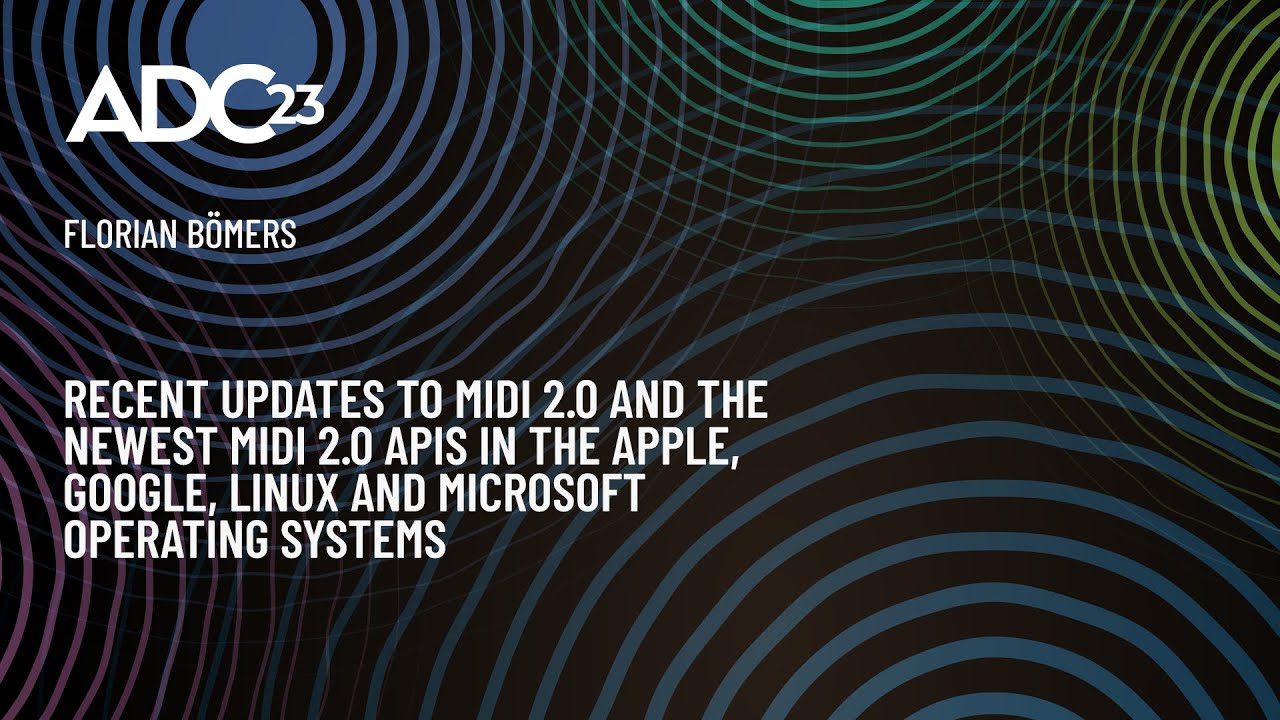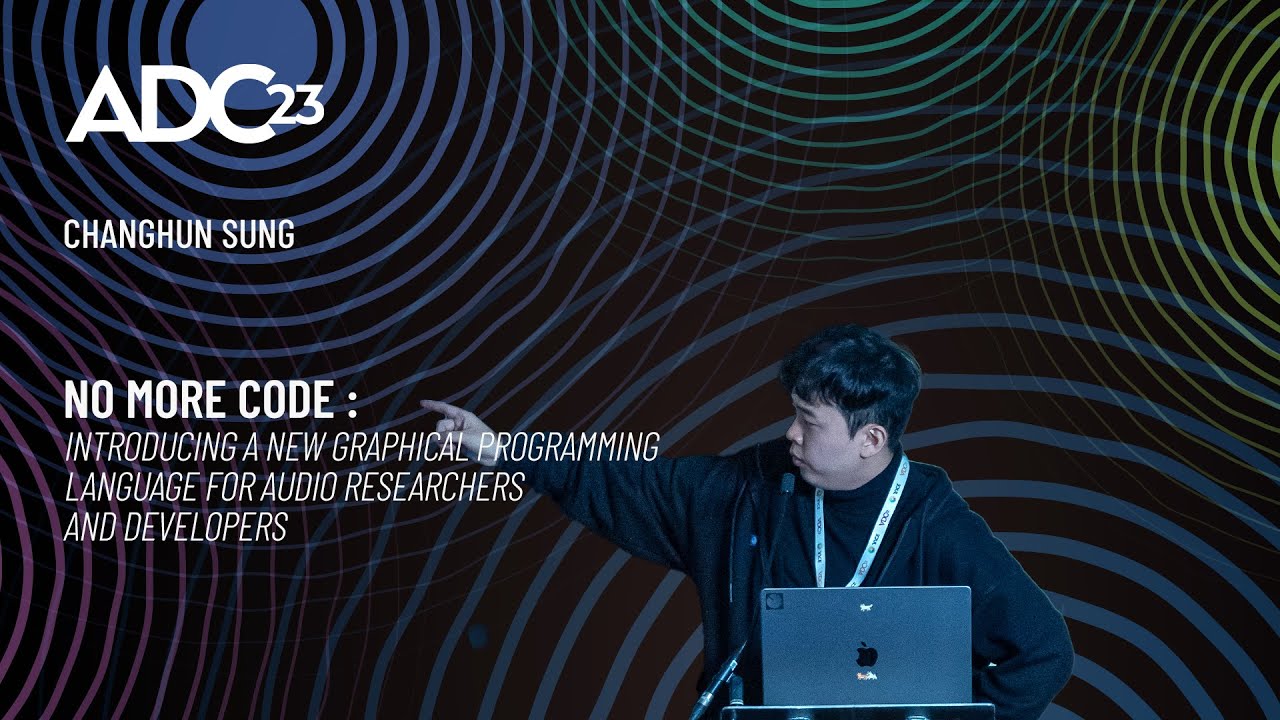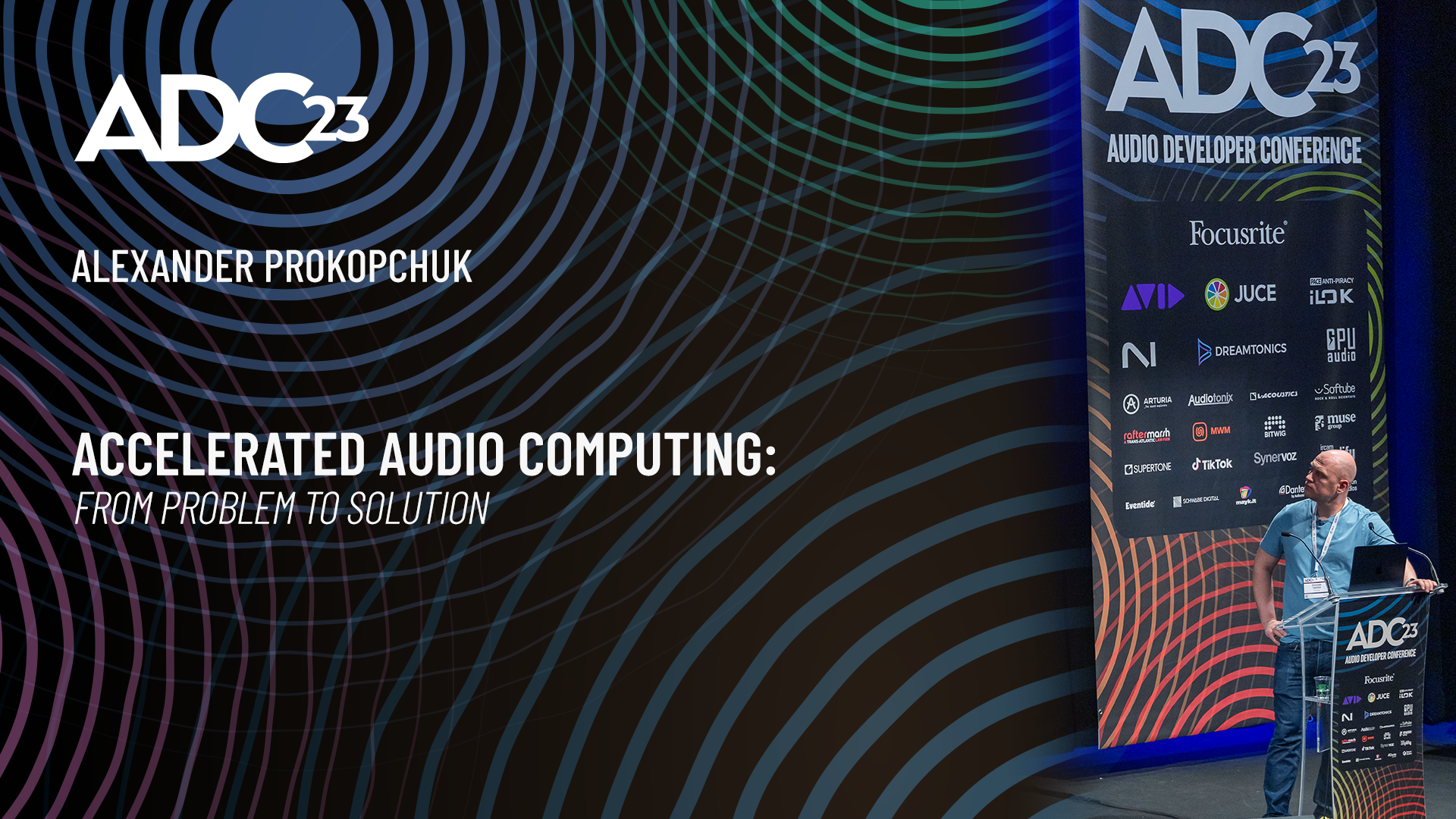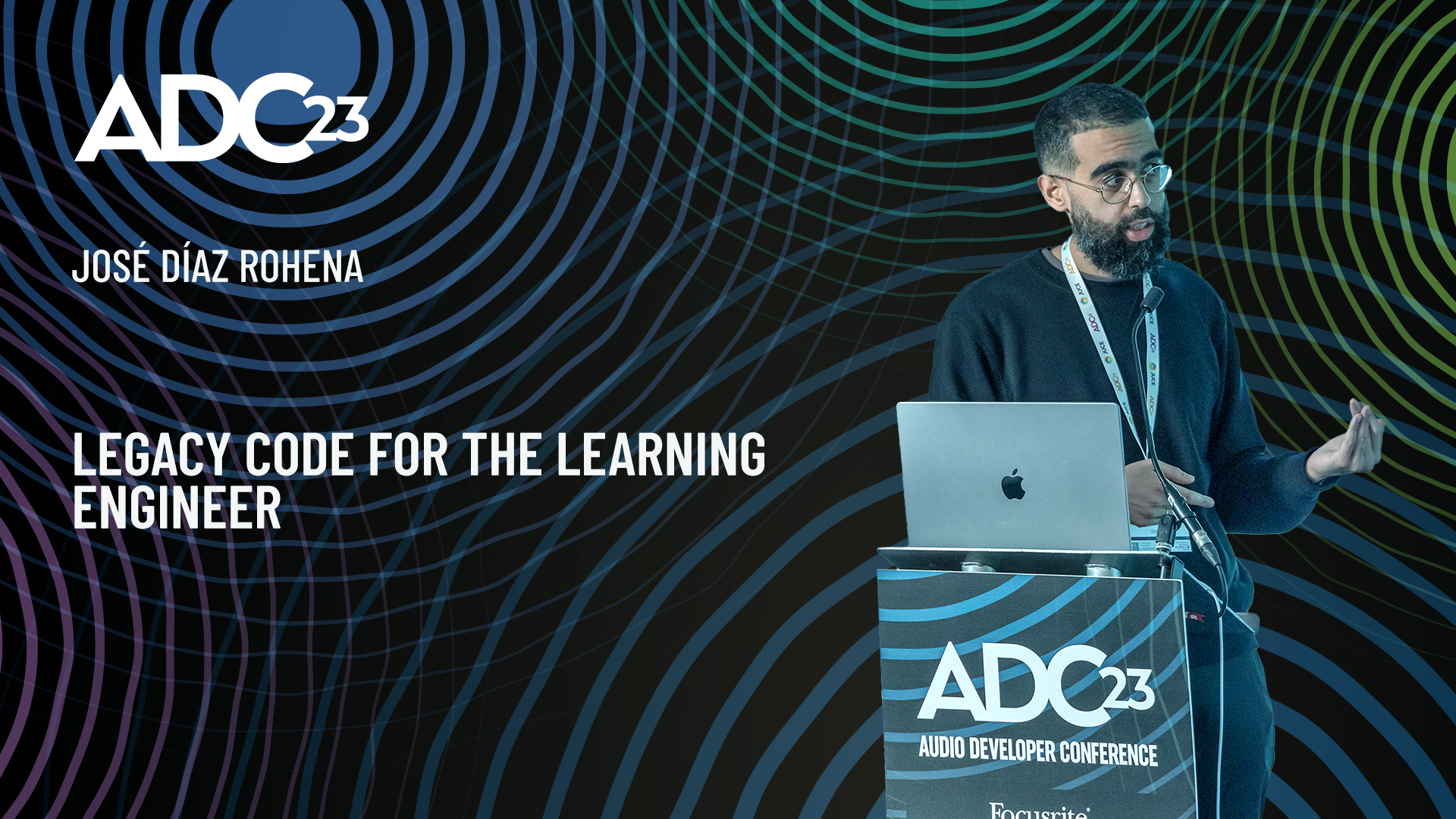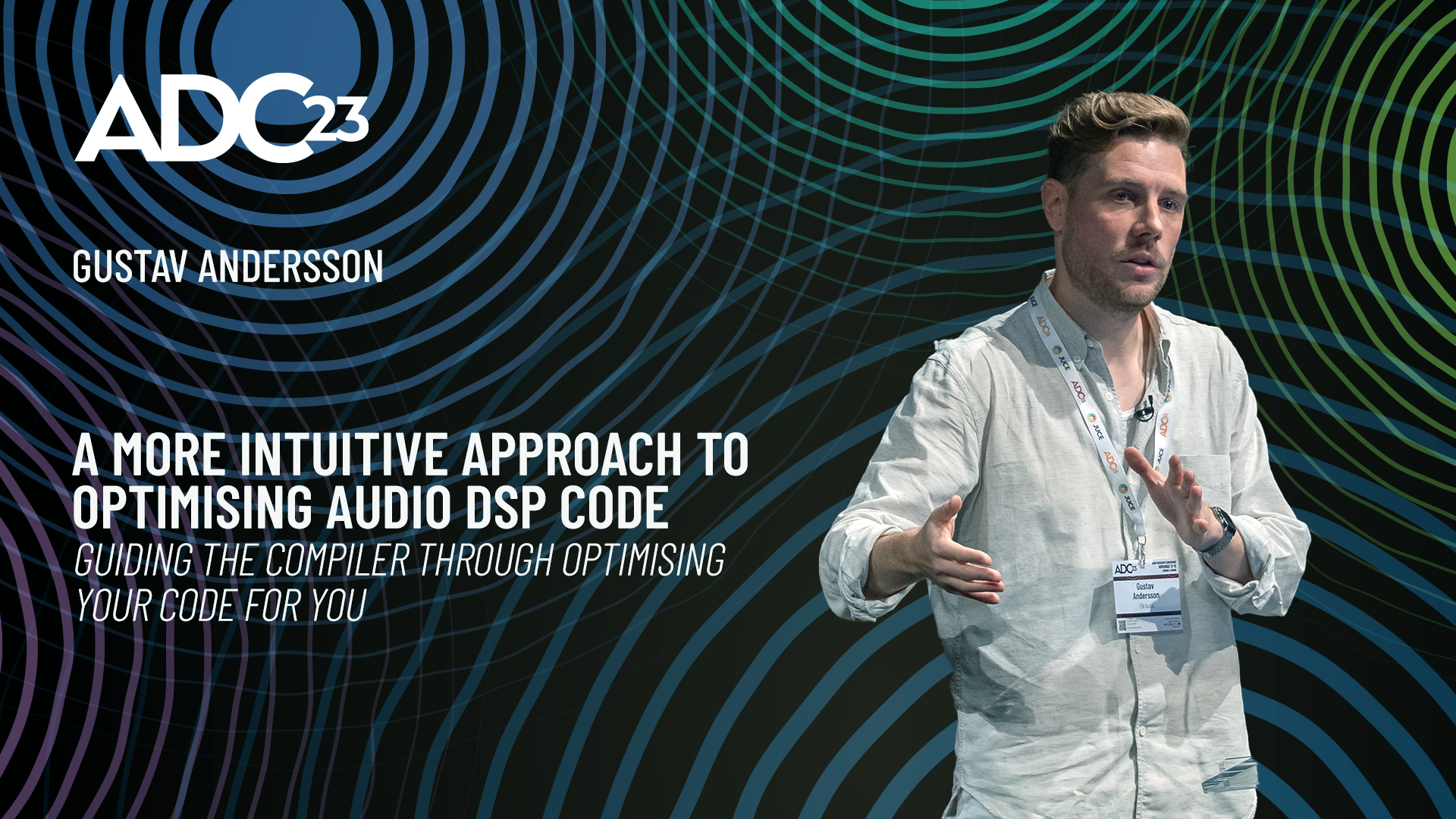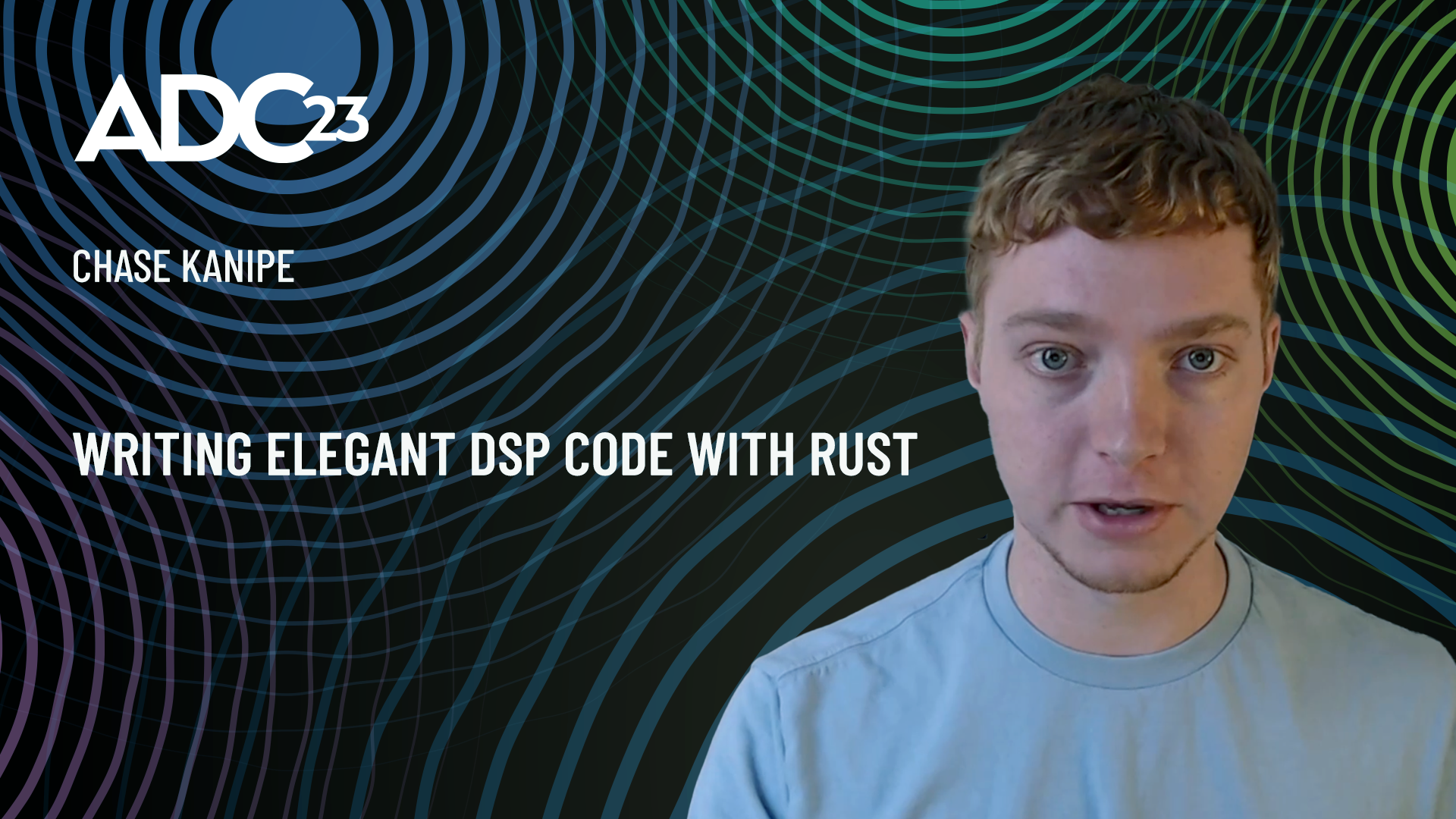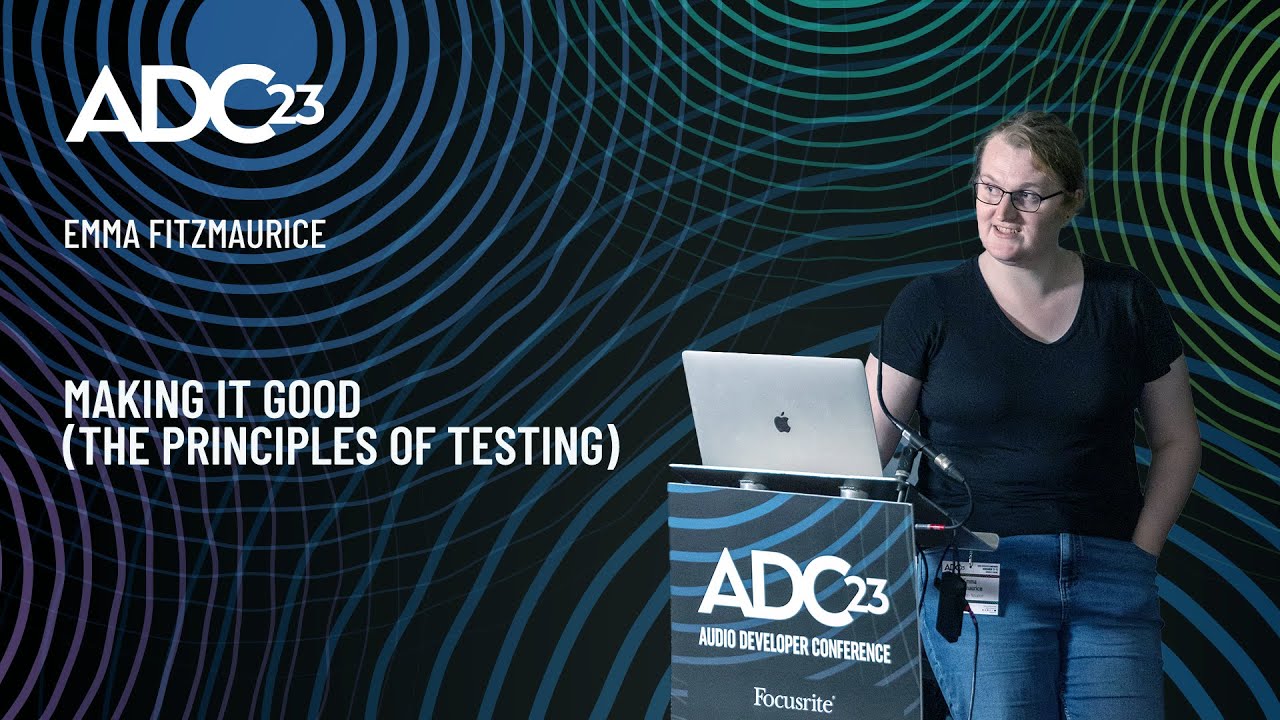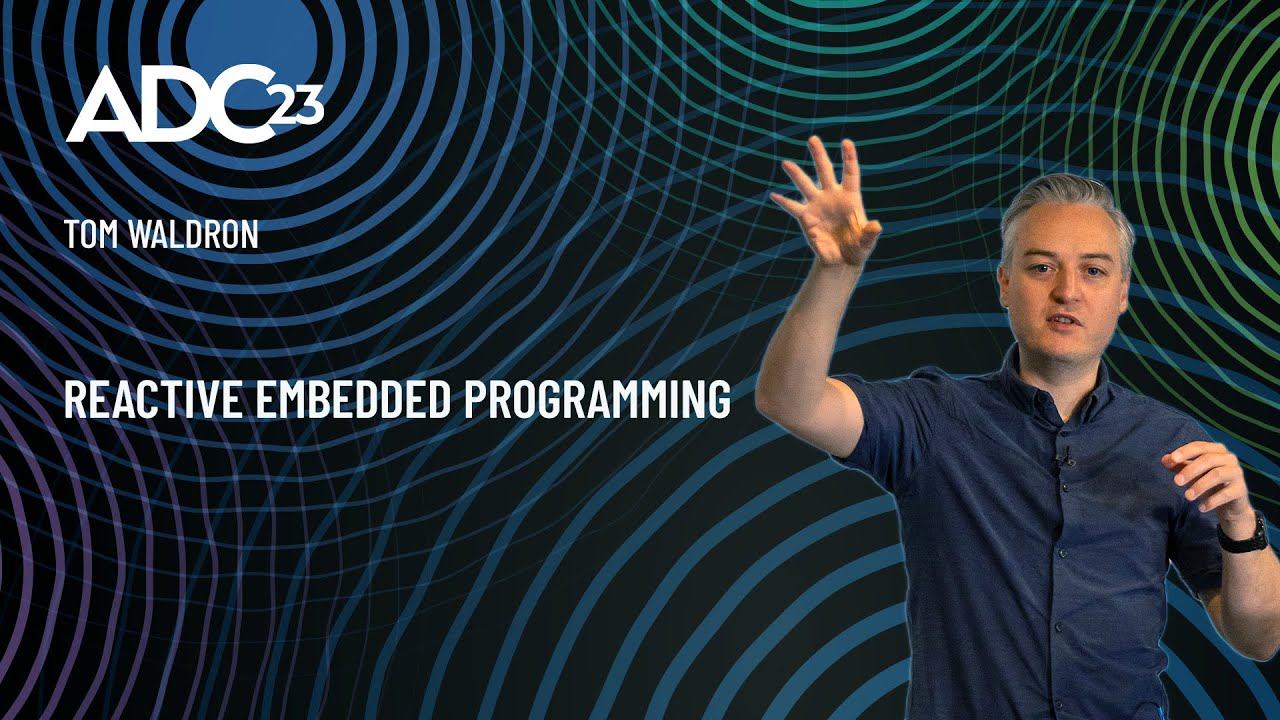https://audio.dev/ -- @audiodevcon
Recent Updates to MIDI 2.0 and the newest MIDI 2.0 APIs in the Apple, Google, Linux and Microsoft operating systems - Florian Bömers - ADC23
Members of the MIDI Association will provide a high-level overview of the latest updates to MIDI 2.0 specifications and the brand new MIDI 2.0 APIs in the Apple, Google, Linux, and Microsoft operating systems.
There will be an overview of specifications being worked on, including the Piano, MPE, Orchestral Articulation, and Camera Control Profiles, and the Network Transport specifications all of which are nearing completion.
We will briefly explain the MIDI Association MIDI 2.0 logo licensing program.
Most importantly, we will explain how developers can get access to the MIDI 2.0 tools and open-source code that the MIDI Association and our members are making available to both MIDI Association members and the larger MIDI development community.
_
Florian Bömers
Florian Bömers has been using MIDI since the mid-80s and started programming audio and MIDI applications already in his childhood. Now he manages his company Bome Software, which creates standard software and hardware solutions for MIDI networking and MIDI translation. In the MIDI Association, Florian chairs the MIDI 2.0 Transport Working Group and is a member of the Technical Standards Board.
_
Streamed & Edited by Digital Medium Ltd: https://online.digital-medium.co.uk
_
Organized and produced by JUCE: https://juce.com/
_
Special thanks to the ADC23 Team:
Sophie Carus
Derek Heimlich
Andrew Kirk
Bobby Lombardi
Tom Poole
Ralph Richbourg
Jim Roper
Jonathan Roper
Prashant Mishra
#adc #audiodev #dsp #audio #midi
